Turning data into health intelligence
Timely information on disease cases is a critical element of any public health response, including New Zealand’s response to COVID-19. Together with ESR we built intelligence dashboards for both the general public and health professionals to support the national control effort.

The Liley Medal 2021 Winner
We are honoured and proud to receive the prestigious HRC Liley Medal for our work as part of the COVID-19 research team led by ESR.
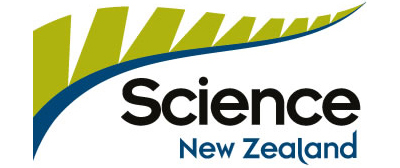
Science NZ Supreme Award
As part of the ESR team, we received the Supreme Award at the Science New Zealand Awards 2020 for our work in New Zealand's COVID-19 response.
Turning data into health intelligence
The Institute for Environmental Science and Research (ESR) operates the national notifiable disease surveillance database, EpiSurv, on behalf of the Ministry of Health. EpiSurv collates notifiable disease information on a real-time basis from the Public Health Services (PHS) in New Zealand. Data collected includes case demographics, clinical features and risk factors.
The information collated through this process for COVID-19 had to be quickly turned into easy to access intelligence for health professionals to support their decision-making. At the same time unprecedented public interest required case information to be communicated to the public in a clear and easy to understand way, while safeguarding the privacy of those affected.
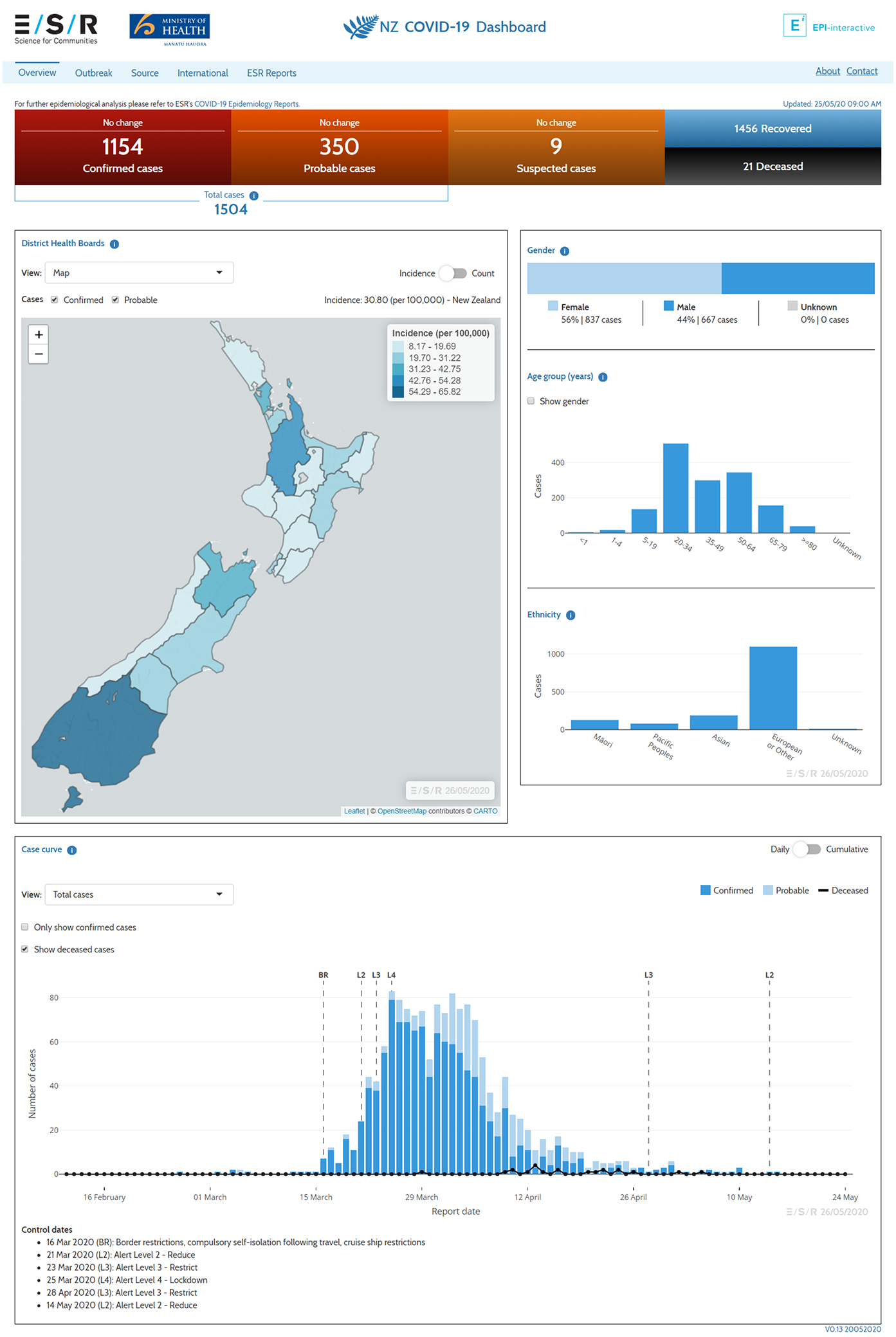
A highly collaborative effort
Building the dashboards required a deep collaborative effort between epidemiologists, software engineers, data scientists and interface designers. Working together across subject matter boundaries had a big impact and allowed us to release a first version of the dashboards in only three weeks.
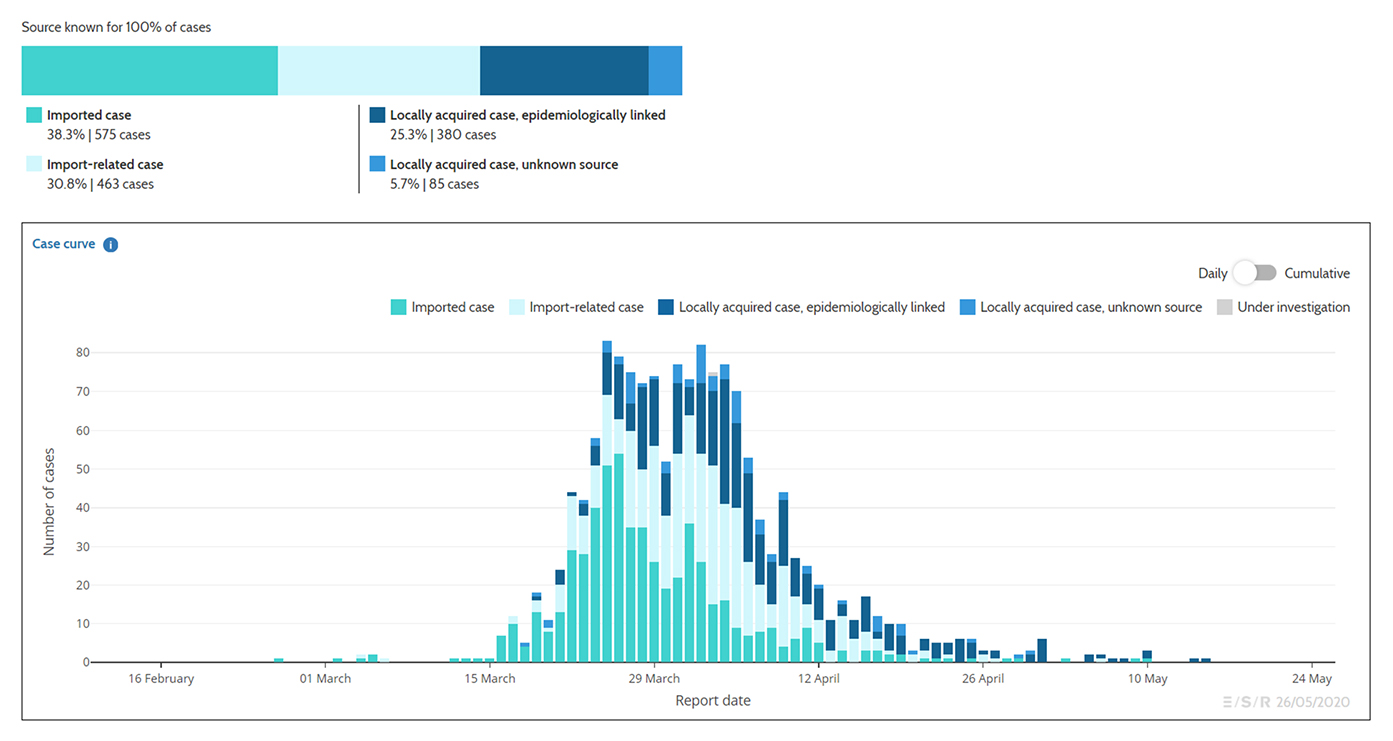
Agile response to changing requirements
As the situation evolved, we continued to add functionality to the dashboards. This required us to be agile and quickly respond to on-the-ground needs of e.g. the Ministry of Health and public health units.
We also extended functionalities of the public dashboard to provide insight into different local outbreaks and allow comparison of the New Zealand situation with other countries. The latter required us to link into international datasets.
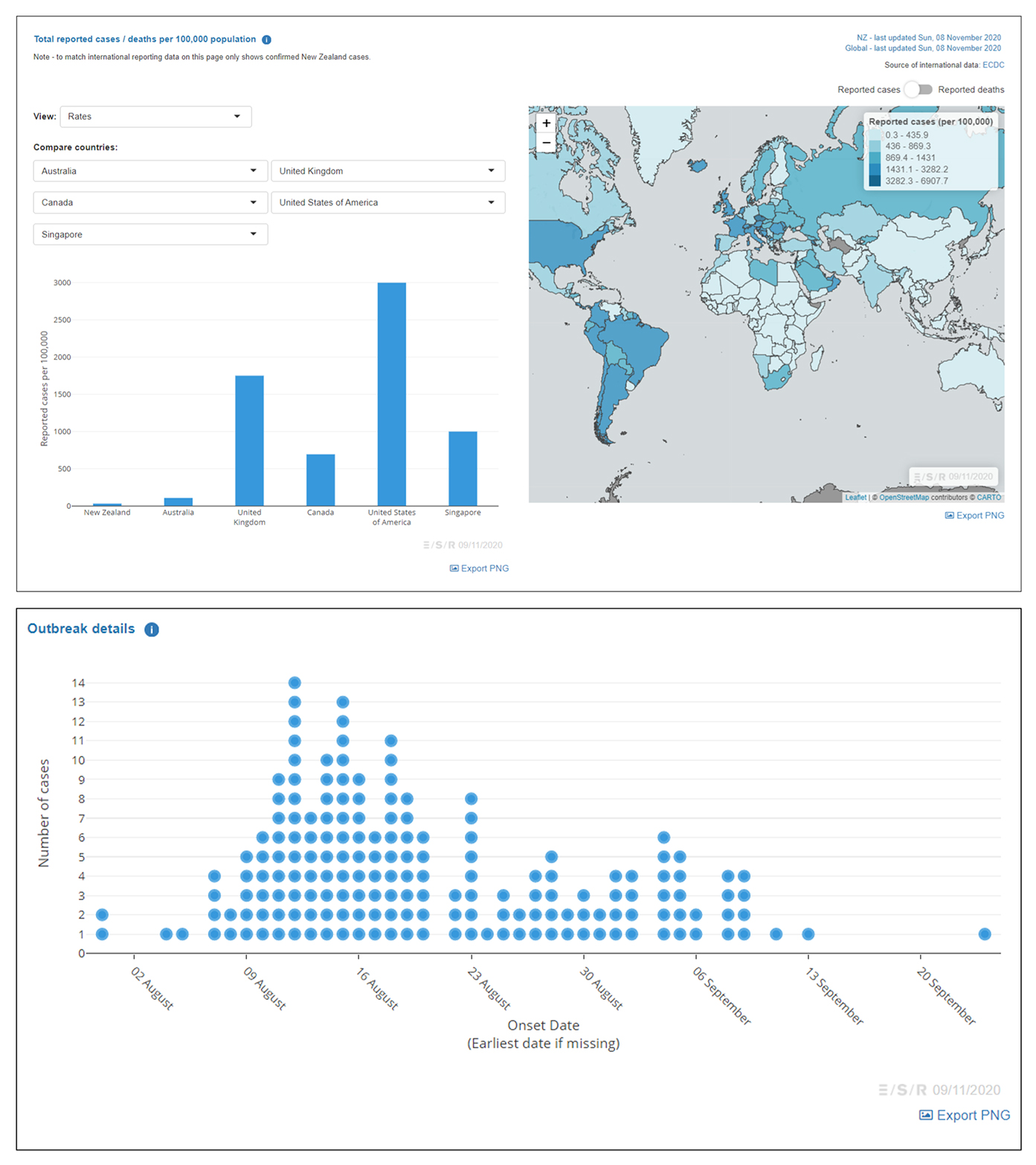
Science-supported
While working on the dashboard we also contributed to research to help draw learnings from New Zealand’s initial experience with COVID-19. We supported the work through our expertise in epidemiology, specialist analysis of large data sets and customised graphics to help communicate complex findings.
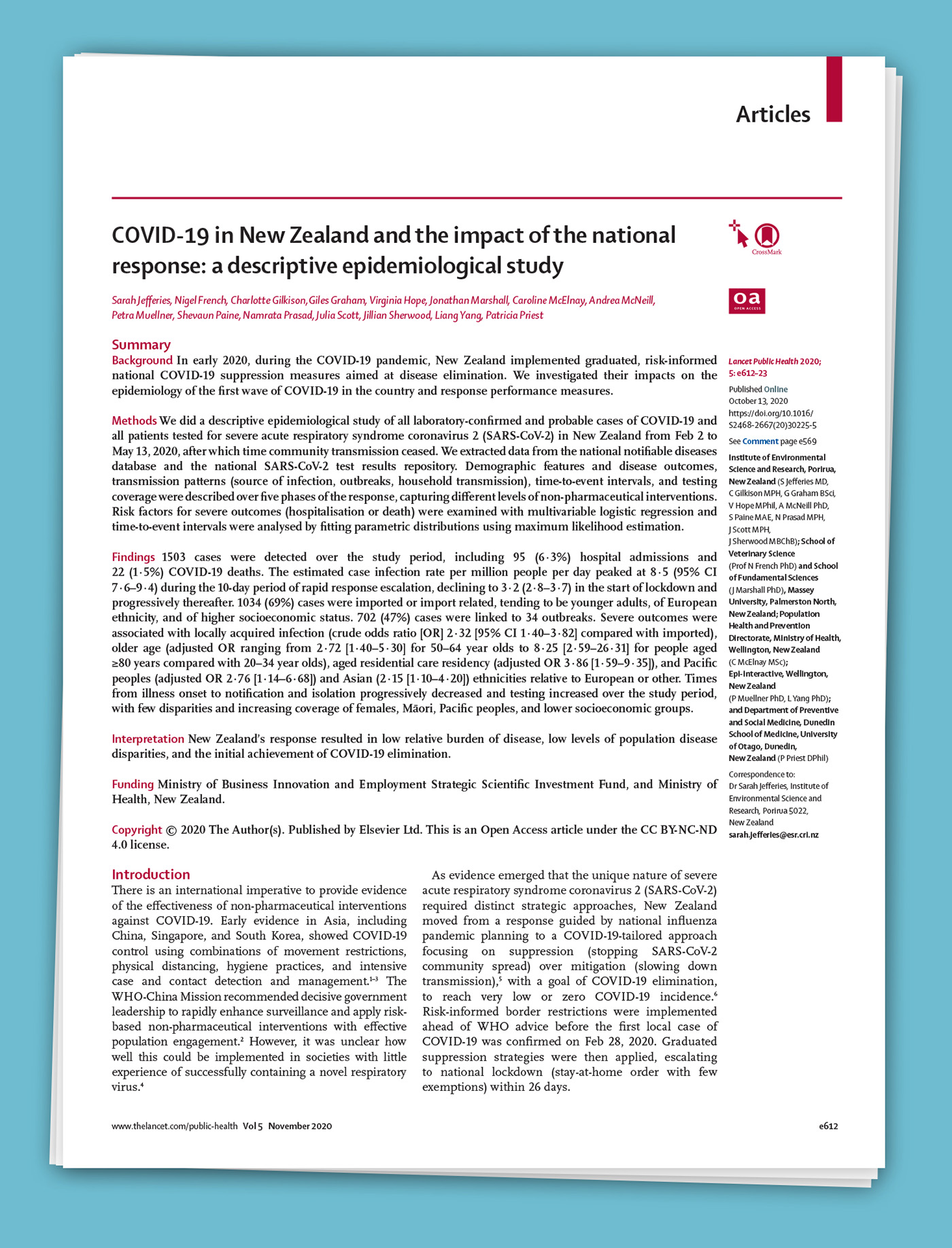
Presentations
Jefferies S, French N, Gilkison C, Graham G, Hope V, McElnay C, McNeill A, Muellner P, Paine S, Prasad N, Scott J, Sherwood J, Yang L , Patricia Priest P. The epidemiology of coronavirus disease 2019 in New Zealand and impacts of the national response. One Health Aotearoa (OHA) Symposium, New Zealand, 2020.
Publications
French N, Jones G, Heuer C, Hope V, Jefferies S, Muellner P, McNeill A, Haslett S, Priest P. Creating symptom-based criteria for diagnostic testing: a case study based on a multivariate analysis of data collected during the first wave of the COVID-19 pandemic in New Zealand. BMC Infectious Diseases, 21. doi: 10.1186/s12879-021-06810-4, 2021.
Available here
Jefferies S, French N, Gilkison C, Graham G, Hope V, Marshall J, McElnay C, McNeill A, Muellner P, Paine S, Prasad N, Scott J, Sherwood J, Yang L, Priest P. COVID-19 in New Zealand and the impact of the national response: a descriptive epidemiological study. Lancet Public Health, doi: 10.1016/S2468-2667(20)30225-5, 2020.
Available here


